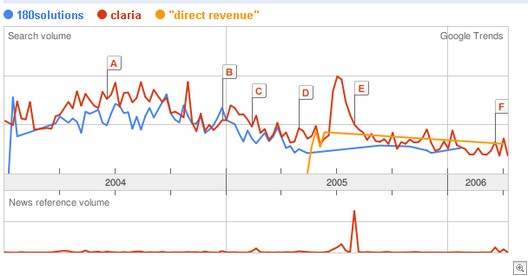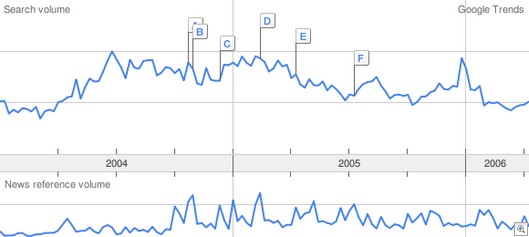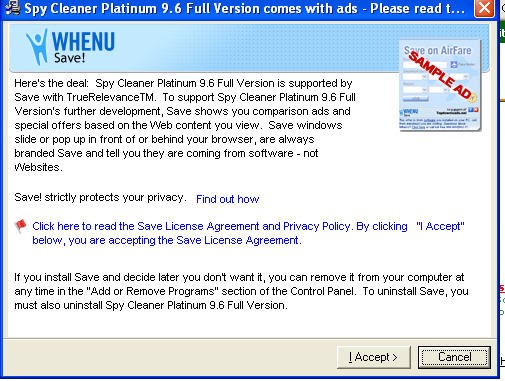The term “social networking” is being bandied about a lot these days, but it was actually first coined way back in the 1950s by author and professor J.A. Barnes, and it’s a popular topic of study in the fields of sociology and social psychology. In the original sense, it refers to the ways that individuals or organizations connect to one another. A social network could be a family or household, the members of a club, or even a whole country.
A key element of the “network” is that individuals who don’t know one another are connected through other people that they both know. In the 60s, a psychologist named Stanley Milgram postulated that any two typical U.S. citizens who aren’t acquainted with each other can be connected through a chain of no more than six others. This led to the theory of “six degrees of separation” and subsequently a movie by the same name about a con man who, in the 1980s, convinced many people that he was the son of a famous actor.
With the growing ubiquity of the Internet, a new meaning for the term has emerged. It refers to Internet applications that help people, often otherwise strangers, connect and form relationships. No longer a bit of jargon known only to sociology professionals, social networking is now a mainstream concept, popularized by Web sites such as Friendster, Facebook and the current frontrunner, especially among teenagers and twenty-somethings, MySpace.com.
Social networking sites usually allow users to create personal profiles, write Web logs (blogs) to share with other members or the public, engage in live chat/instant messaging and share files (especially photos).
While Barnes’ contention was that a typical social network consists of a maximum of 125 to 150 people, the Internet has greatly expanded those limits. MySpace.com had over 77 million members as of May 2006, according to Wikipedia. In fact, you can see a list of popular social networking sites and their user count at here.
Of course, the actual social networks within these sites (that represent the people to whom any given individual is “connected”) are much smaller. You’ll also note that the sites that are more “specialized” tend to have much lower numbers of users. While Friendster, MySpace and other generalized sites have memberships in the millions, sites such as aSmallWorld (dedicated to the European jet set and social elite) and Nexopia (which focuses on Western Canada) measure their users in the tens or hundreds of thousands.
Some social networking sites, such as OkCupid, are essentially just dating services. Others, such as Classmates.com and Reunion.com, were created more for the purpose of finding old, lost friends than making new ones. And many of the social networking sites, such as Tagged, Studybreakers, The Student Center, myYearbook, ProfileHeaven, Facebook and many others, are aimed directly at high school and/or college students – although they are increasingly attracting younger children as well.
And therein lies the problem. There have been numerous reports of sexual predators using the social networking sites to troll for victims and there have been several arrests. One of the most recent was reported May 12 in the Chicago Tribune here.
Older people may pose as kids themselves to con naïve teenagers into agreeing to meet them or give them personal information. Many young people put information that will allow them to be tracked down in their public profiles.
Most young people downplay the dangers and see the sites as harmless fun, insisting that all it takes is a little common sense to avoid being victimized. However, many parents are up in arms, not only about the risk but about the amount of time teens are spending on these sites – time that could be devoted to school work and “real world” friends and activities. Now (surprise, surprise) the government is getting into the act.
This month, a bill was filed in Congress, called the “Deleting Online Predators Act,” which would require schools and libraries to block access to social networking sites. You can read the actual bill here (PDF).
Note that it doesn’t impose criminal or civil sanctions on schools that fail to abide by the rule. The requirement is for “recipients of universal service support” – that means if you don’t obey, your federal funding can be yanked. Proponents feel this is a necessary step to protect children. Critics of the legislation point out that it puts an undue burden on the schools and libraries, requiring them to invest in more expensive filtering software and punish them (by withholding funds) if inappropriate sites somehow get through.
But is this law even enforceable? Most filtering software works by consulting a list of sites deemed inappropriate (“blacklists”) and blocking those that are found on the list. However, as described in this recent article in the Dallas Morning News, tech savvy teens can get around the filtering by going through proxy sites.
Atlhough those who maintain the blacklist can also add proxy sites to the lists, new sites pop up every day. Trying to keep up with them all may be a losing battle.
The only way to effectively ensure that students don’t visit undesirable sites is to use “whitelists” instead. With this type of filtering, instead of trying to keep a list of sites that aren’t allowed, you maintain a list of sites that are. The software blocks all sites that aren’t on the list. But some educators see this as overly restrictive; it limits students to only pre-approved sites and prevents them from freely surfing the ‘net and makes it more difficult to do extensive research and discover legitimate, safe but new sites that haven’t made it onto the list.
Other critics of the law opine that a government mandate to block these sites will only make them more attractive to kids, and say that most kids who are being victimized by online predators aren’t communicating with them during school hours, but after hours on home computers. Still others oppose the law not so much on its intent or content, but simply feel it’s not a matter for the federal government to legislate; since schools are run by local entities, shouldn’t the decision to force such provisions on them be a matter of local or state legislation? And many are asking why this is suddenly an issue – how do such sites really differ (in inherent risks, if not in sophistication) from the old AOL chatrooms or IRC channels?
Tell us what you think. Are the dangers of social networking sites (like, perhaps, the danger of bird flu) being vastly overexaggerated? Or are these sites cesspools of depravation that should be wiped from the face of the earth? Something in between? If they do present a risk to children, what’s the best way to ameliorate the dangers?
Should we be making a federal case out of it? Or should states and school boards be handling it? Or is this a matter better addressed by education than by any level of legislation?
If you’re a young person, do you participate in social networking sites? If you’re a parent or teacher, have you seen problems caused by social networking? How about the business-oriented social networking sites? Have they helped you in making contacts to advance your career?
Deb Shinder



